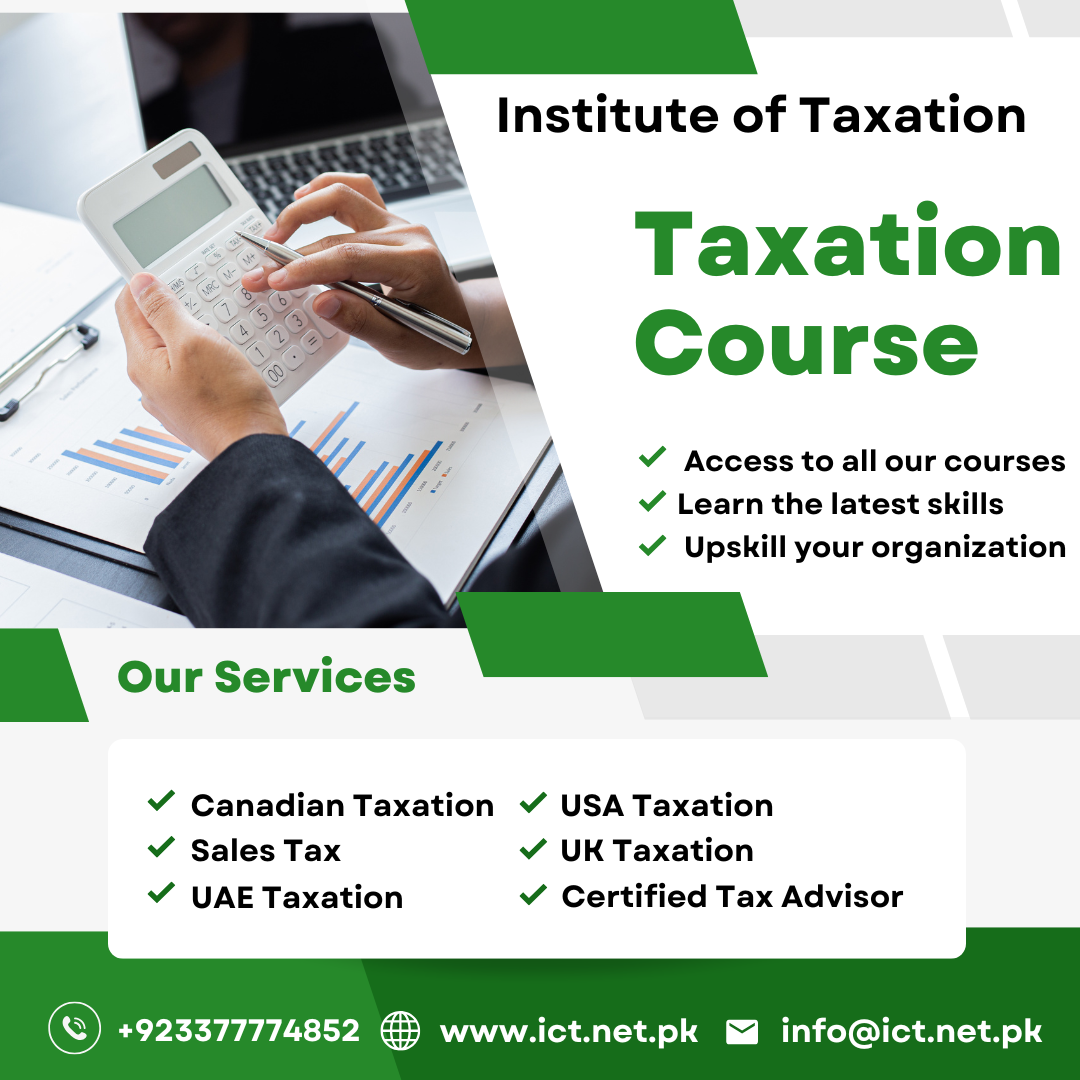Introduction: The Untapped Goldmine in Tax Education
Imagine saving annually—without changing your job, cutting expenses, or working more hours. Sounds impossible? It’s not. One of the most overlooked yet powerful financial moves you can make is taking a simple Taxation Course. Whether you're a freelancer, small business owner, investor, or salaried employee, understanding tax laws isn't just smart—it's profitable. With just a few hours of focused learning, you can unlock tax-saving strategies that most people miss, year after year.
Let’s explore how a basic tax course can put real money back in your pocket—and keep it there.
How Can a Simple Taxation Course Save You Thousands?
1. Tax Knowledge Reduces Costly Mistakes
According to the IRS, over 5 million taxpayers overpay their taxes each year due to errors and missed deductions. A tax course teaches you what qualifies as a deductible expense, how to structure income properly, and which forms to use. These details can mean the difference between a refund and a penalty.
2. Claim Every Deduction You Deserve
You probably qualify for more tax breaks than you think. A taxation course will introduce you to:
- Home office deductions
- Mileage and travel write-offs
- Educational credits
- Child tax credits
- Retirement contributions
- Health savings account (HSA) deductions
For instance, if you're self-employed and haven’t been deducting your phone and internet usage, you could be losing $1,000+ annually.
3. Small Business Owners: Optimize Your Structure
Are you an LLC, sole proprietor, or S Corp? Your business structure dramatically impacts how much you pay in taxes. A tax course can teach you the most tax-efficient way to operate, potentially saving thousands each year in unnecessary self-employment taxes or underutilized write-offs.
4. Audit-Proof Your Finances
Fear of the IRS is real—and often rooted in misunderstanding. A good tax course explains:
- How to legally minimize audit risks
- What records to keep (and for how long)
- The red flags the IRS looks for
Knowledge is power—and peace of mind.
5. Tax Planning vs. Tax Filing
Many taxpayers think filing is the same as planning. It’s not. Filing is historical; planning is strategic. A taxation course teaches year-round strategies like:
- Timing your income
- Prepaying expenses
- Adjusting withholdings
- Smart investing for tax efficiency
This alone can result in 5–15% annual savings, depending on your income bracket.
Frequently Asked Questions (FAQs)
Q1: Do I need an accounting background to take a taxation course?
Absolutely not. Most beginner-level courses are designed for everyday individuals and business owners with zero financial experience.
Q2: How long does a course take?
Many comprehensive courses can be completed in 5–10 hours online, at your own pace.
Q3: Is it really worth the investment?
If you save even $500 annually, a $100–$200 course pays for itself immediately—and then some.
Q4: Will this replace my accountant?
No, but it will make you a better client. You'll ask smarter questions, ensure fewer mistakes, and maximize your collaboration.
Q5: Are tax laws really that complicated?
They can be—but courses break them down clearly, focusing on practical application, not legal jargon.
Real-Life Example: Meet Jessica
Jessica, a freelance graphic designer, took a $149 tax course in early 2023. By the end of the year, she:
- Realized she could deduct her Adobe subscription, internet, and part of her rent
- Reclassified herself as an LLC for better tax treatment
- Set up a SEP IRA, reducing her taxable income by $4,000
Total tax savings:
Conclusion: Financial Clarity Starts With Education
A simple taxation course is not just another online class—it’s a game-changing investment. In a world where the average person unknowingly overpays taxes, equipping yourself with basic tax knowledge puts you ahead of 90% of taxpayers. Whether you're a high earner or just getting by, there are savings on the table—and it's up to you to pick them up.





Comments